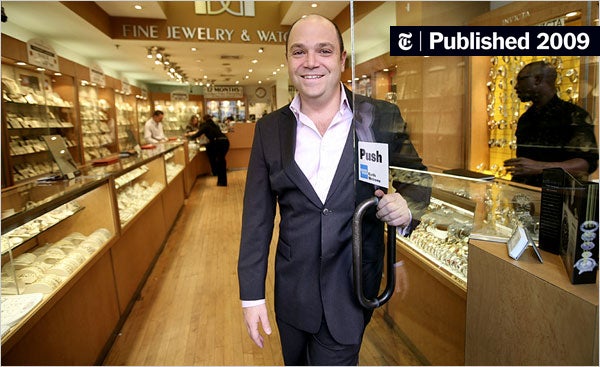If you’ve ever been intrigued by the glint of gold, the weight of silver, or the mystery behind rare earth elements, you’re not alone. The precious metals industry is far more than just gold bars in bank vaults or sparkly jewelry — it’s a global network of mining operations, traders, metallurgists, and investment professionals.
But is it a good career path? Earlier we talked about different career paths:
But this time, let’s explore what this field really offers, from job stability to salary potential and long-term opportunities.
What Are Precious Metals?
Precious metals are rare, naturally occurring metallic elements that have high economic value. The most well-known ones include:
Gold – Used in jewelry, electronics, and finance
Silver – Known for its role in industry, solar energy, and coins
Platinum & Palladium – Crucial for automotive and chemical industries
Rare Earth Metals – Essential for green energy tech and electronics
Because of their widespread applications — and finite supply — these materials are in constant global demand.
Is It a Good Career Path?

Yes, for the right person. A career in precious metals can be:
Lucrative – Skilled roles often come with strong compensation, especially in finance, trading, and engineering.
Stable – Precious metals tend to hold their value during economic downturns, and demand for experts remains steady.
Global – There are opportunities to work across continents, from mines in Africa and Australia to trading desks in New York and Zurich.
Diverse – Career paths range from mining engineering to commodity trading, jewelry design to metallurgy.
However, it’s not for everyone. Some roles require working in remote areas or volatile market conditions. But if you enjoy the mix of science, business, and tangible assets — this field might be golden for you.
Common Career Paths in Precious Metals
Here are 10 top job roles in the precious metals industry, including what they do:
1. Precious Metals Trader
They buy and sell gold, silver, platinum, and other metals for clients or firms. Their job involves tracking global markets, making quick decisions, and aiming for profit through smart timing and market insight.
2. Jewelry Designer
These creatives sketch and craft original jewelry using metals and gemstones. They mix aesthetics with function, often working with clients, fashion brands, or luxury retailers.
3. Bench Jeweler
They work hands-on with jewelry—repairing, resizing, setting stones, and assembling pieces. It’s a technical role requiring precision, craftsmanship, and attention to detail.
4. Metallurgist
A metallurgist studies the properties and structures of metals. In the precious metals industry, they often focus on improving extraction techniques, developing new alloys, and refining processes.
5. Goldsmith/Silversmith
These skilled artisans manually create items like rings, silverware, or decorative objects from precious metals. It’s one of the oldest and most respected roles in the trade.
6. Precious Metals Assayer
Assayers test metals for purity and composition. Their work is essential in verifying the value of raw materials, jewelry, and bullion for sale or certification.
7. Mining Engineer
They plan and manage the safe and efficient extraction of metals from the earth. These engineers often work on-site at mines, handling logistics, equipment, and compliance.
8. Refinery Technician
These technicians operate machines and follow chemical processes to purify metals. They help turn mined ore or scrap into high-purity bars or coins.
9. Numismatist
A coin expert who specializes in identifying, valuing, and collecting rare coins, often made from gold and silver. They work in museums, auctions, or as independent dealers.
10. Precious Metals Appraiser
Appraisers determine the value of jewelry, bullion, or metal objects based on purity, weight, craftsmanship, and market rates. Their evaluations are used for insurance, resale, or investment purposes.

What Skills and Qualifications do you need for Precious Metals Career?
Depending on your path, the qualifications vary. Here are some key ones:
Mining & Engineering: A degree in geology, engineering, or materials science
Finance & Trading: A background in economics, finance, or business
Jewelry & Artisanal Roles: Training at a design school or apprenticeship
Lab Work & Assaying: Strong foundation in chemistry and metallurgy
Soft Skills: Attention to detail, risk management, and communication
Certifications like Chartered Financial Analyst (CFA) or specialized metallurgy licenses can help you level up.
How to Get Started in a Precious Metals Career
The precious metals industry spans technical, creative, and financial fields — and your entry point depends on the role. Here’s how to launch your career, step by step, with practical examples.
💍 For Jewelry Designers & Bench Jewelers
What they do: Design and craft jewelry using gold, silver, platinum, and gemstones.
How to get started:
-
Enroll in a program like the Jewelry Design Certificate at GIA or a course at Savannah College of Art and Design (SCAD) or Fashion Institute of Technology (FIT).
-
Learn CAD software (like RhinoGold or MatrixGold) for modern jewelry design.
-
Get an apprenticeship at a local jeweler or apply for a bench jeweler trainee position at retail chains (e.g., Jared, Kay, or Zales).
-
Build a portfolio on Instagram or platforms like Etsy or ArtStation.
⚒️ For Goldsmiths or Silversmiths
What they do: Shape and fabricate precious metals into functional or decorative items.
How to get started:
-
Take hands-on courses in metalworking from schools like New Approach School for Jewelers or The Jewelry Arts Institute.
-
Join a metal arts guild in your city (e.g., Metal Arts Guild of San Francisco).
-
Begin selling simple handmade items online to develop your skills and customer base.
⚗️ For Assayers & Refinery Technicians
What they do: Analyze the content of metals to determine purity and value. Work in labs or metal refining plants.
How to get started:
-
Complete an associate degree in chemistry or materials science.
-
Get OSHA safety certifications, as refining labs handle hazardous materials.
-
Apply to entry-level lab tech roles at companies like Johnson Matthey, Valcambi, or Asahi Refining.
-
Some countries require certification as a registered assayer—check your national or state guidelines.
👷 For Mining Engineers
What they do: Design and supervise the extraction of metals from mines.
How to get started:
-
Get a bachelor’s degree in mining engineering or geological engineering from accredited universities (e.g., Colorado School of Mines, University of Arizona).
-
Complete internships at mining companies such as Barrick Gold, Newmont, or Anglo American.
-
In the U.S., pass the FE (Fundamentals of Engineering) exam for licensing.
-
Expect to work in remote locations early in your career.
🧪 For Metallurgists
What they do: Study and develop processes to extract and refine metals efficiently and sustainably.
How to get started:
-
Earn a degree in metallurgy, materials science, or chemical engineering.
-
Gain lab experience in smelting or refining environments.
-
Apply to graduate trainee programs at firms like Rio Tinto, Glencore, or BASF.
💱 For Precious Metals Traders
What they do: Buy and sell gold, silver, platinum, and other metals as commodities or assets.
How to get started:
-
Study finance, economics, or business with a focus on commodities trading.
-
Get licensed — in the U.S., obtain a Series 3 license from the National Futures Association.
-
Use trading simulators (e.g., TradingView, NinjaTrader) to learn real-time strategies.
-
Apply for junior roles at brokerage firms, banks, or exchanges (like CME Group or Kitco).
🏦 For Appraisers
What they do: Professionally evaluate the value of precious metal items, including jewelry, coins, or bars.
How to get started:
-
Complete a certification course from the American Society of Appraisers (ASA) or NAJA (National Association of Jewelry Appraisers).
-
Learn how to use tools like x-ray fluorescence analyzers (XRFs) and test kits.
-
Start with appraisal assistant jobs at jewelry stores or auction houses like Sotheby’s or Heritage Auctions.
🪙 For Numismatists (Coin Experts)
What they do: Study and trade collectible coins, often specializing in historical or rare pieces.
How to get started:
-
Take numismatics courses via the American Numismatic Association (ANA).
-
Attend coin shows, and auctions, and become a member of ANA or similar groups.
-
Volunteer or intern at coin dealers or museums.
-
Build a niche blog or YouTube channel to share your expertise and attract clients.
Who Thrives in Precious Metals Career?

You might love a career in precious metals if:
-
You enjoy tangible assets and real-world value
-
You’re analytical and data-driven (especially in trading and analysis)
-
You don’t mind getting your hands dirty (literally, in mining or lab work)
-
You’re entrepreneurial or love high-stakes decision-making
-
You’re artistic and meticulous (in jewelry or crafting roles)
The Bottom Line: Is Precious Metals a Good Career Path?
Absolutely — if you’re drawn to a field that balances tradition and innovation, financial savvy and earth sciences, art and industry. Whether you want to engineer a cleaner mining operation, analyze global gold markets, or craft timeless jewelry pieces, there’s space for you in this surprisingly diverse field.
The precious metals industry isn’t just shiny — it can be a solid, rewarding, and dynamic career path for those ready to dig in.
We have other interesting articles at AgilePR for you.




